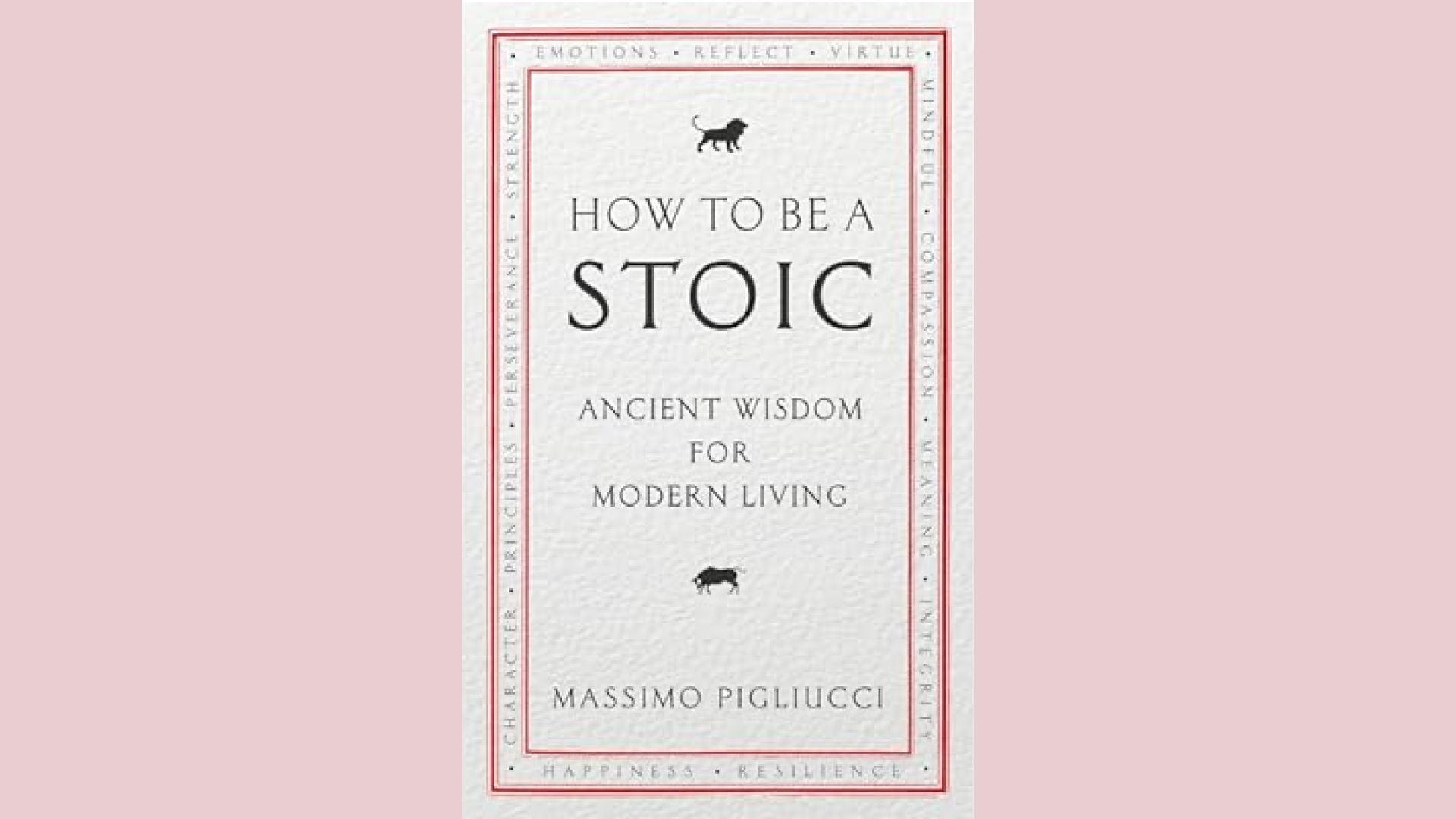Summary: How to Be a Stoic by Massimo Pigliucci

Stoicism, an ancient philosophy that has stood the test of time, offers profound insights and practical strategies for living a fulfilling life. Massimo Pigliucci's book "How to Be a Stoic: Using Ancient Philosophy to Live a Modern Life" provides a contemporary guide to Stoic principles. Whether new to Stoicism or looking to deepen your practice, this guide will help you assess and enhance your Stoic living.
Understanding Stoic Principles
Dichotomy of Control
Concept: Understanding what is within our control (thoughts, actions, and reactions) and what is not (external events, others' actions).
Practical Tip: Create a daily list of worries and categorize them into things you can control and can't. Focus only on taking action on what you can control, and practice letting go of the rest.
"The chief task in life is simply this: to identify and separate matters so that I can say clearly to myself which are externals not under my control, and which have to do with the choices I actually control."
Virtue as the Highest Good
Concept: Emphasizing the importance of wisdom, courage, justice, and temperance in leading a good life.
Practical Tip: Reflect on your actions at the end of each day. Identify instances where you demonstrated or failed to demonstrate these virtues and plan how to improve tomorrow.
"Virtue is nothing else than right reason."
Living According to Nature
Concept: Aligning one's life with human nature's rational and social aspects, striving for harmony with the universe.
Practical Tip: Spend time in nature regularly and observe its processes. Use this time to contemplate how you can align your actions with the natural order and your own rationality.
"To live according to nature means to act in accordance with reason, which for the Stoics is the essence of human nature."
Developing Inner Strength
Concept: Building resilience and mental fortitude to face life's challenges and adversities with equanimity.
Practical Tip: Practice voluntary discomfort, such as fasting or cold showers, to build resilience and remind yourself that you can handle discomfort and adversity.
"We suffer more often in imagination than in reality."
Practicing Mindfulness and Self-Reflection
Concept: Regularly reflecting on one's thoughts and actions to ensure they align with Stoic principles and virtues.
Practical Tip: Set aside time each morning or evening for meditation or journaling. Reflect on your day and thoughts and consider how you can improve your life according to Stoic principles.
"Self-reflection is the school of wisdom."
Amor Fati (Love of Fate)
Concept: Embracing whatever happens in life, accepting events as they come without resistance, and finding value in all experiences.
Practical Tip: When faced with an unexpected or challenging situation, remind yourself to say "Amor fati" (love of fate) and look for the lesson or opportunity for growth in the experience.
"Amor fati – love your fate, which is in fact your life."
Memento Mori
Concept: Remembering the inevitability of death to motivate living a meaningful and virtuous life.
Practical Tip: Keep a small object or a note on your desk that reminds you of your mortality. Use it as a prompt to live each day fully and purposefully, focusing on what truly matters.
"Let us prepare our minds as if we'd come to the very end of life. Let us postpone nothing. Let us balance life's books each day."
Community and Social Duty
Concept: Recognizing the importance of contributing to the common good and fulfilling one's societal role.
Practical Tip: Find a way to contribute to your community regularly, whether through volunteering, mentoring or simply being a supportive friend or family member. Reflect on how your actions impact others and aim to make a positive difference.
"We are made for cooperation, like the hands, like the feet."

Author Bio: Massimo Pigliucci
Massimo Pigliucci is a renowned philosopher and author celebrated for his efforts in popularizing Stoicism and connecting ancient philosophical teachings with modern life. Born in Italy, Pigliucci pursued a career in science, earning a Ph.D. in Evolutionary Biology from the University of Connecticut and a Ph.D. in Philosophy from the University of Tennessee. This diverse academic background informs his unique approach to philosophy, emphasizing practical wisdom and scientific rationality.
Pigliucci's work, including "How to Be a Stoic," has been instrumental in the contemporary revival of Stoicism. It provides valuable insights into applying ancient wisdom to modern challenges. Pigliucci continues to inspire individuals to lead more thoughtful and virtuous lives through his writings, teachings, and public engagements.

Stoic Living Assessment: How Stoic Are You?
This assessment will help you evaluate how well you incorporate Stoic principles. Rate yourself on a scale of 1 to 5 for each statement (1 = Not at all, 5 = Always).
Dichotomy of Control
- I focus on what I can control and let go of what I cannot.
- I regularly remind myself of the difference between what is within my control and what is not.
Virtue as the Highest Good
- Daily, I strive to act with wisdom, courage, justice, and temperance.
- I reflect on my actions to ensure they align with these virtues.
Living According to Nature
- I try to align my actions with rationality and the natural order.
- I spend time in nature and contemplate my place in the universe.
Developing Inner Strength
- I practice voluntary discomfort to build resilience.
- I handle life's challenges with poise and mental fortitude.
Practicing Mindfulness and Self-Reflection
- I set aside time for meditation or journaling regularly.
- I reflect on my thoughts and actions to ensure they align with Stoic principles.
Amor Fati (Love of Fate)
- I embrace whatever happens in life without resistance.
- I look for lessons and growth opportunities in all experiences.
Memento Mori
- I remind myself of the inevitability of death to live a meaningful life.
- I focus on what truly matters and live each day fully.
Community and Social Duty
- I contribute to my community and aim to make a positive difference.
- I reflect on how my actions impact others and strive to be supportive.
Scoring:
- 36-40: You live a highly Stoic life, consistently applying Stoic principles.
- 26-35: You are doing well in many areas but have room for improvement.
- 16-25: You are making some effort but could benefit from further reflection and practice.
- 8-15: You have significant opportunities to integrate Stoic principles deeply into your life.
Conclusion
Stoicism is more than a philosophical concept; it is a practical guide to living a fulfilling and virtuous life. Understanding and applying these fundamental principles can enhance resilience, mindfulness, and overall well-being. Take the Stoic Living Assessment to see where you stand and identify areas for growth. Embrace the wisdom of Stoicism and embark on a journey towards a more balanced and meaningful life.
